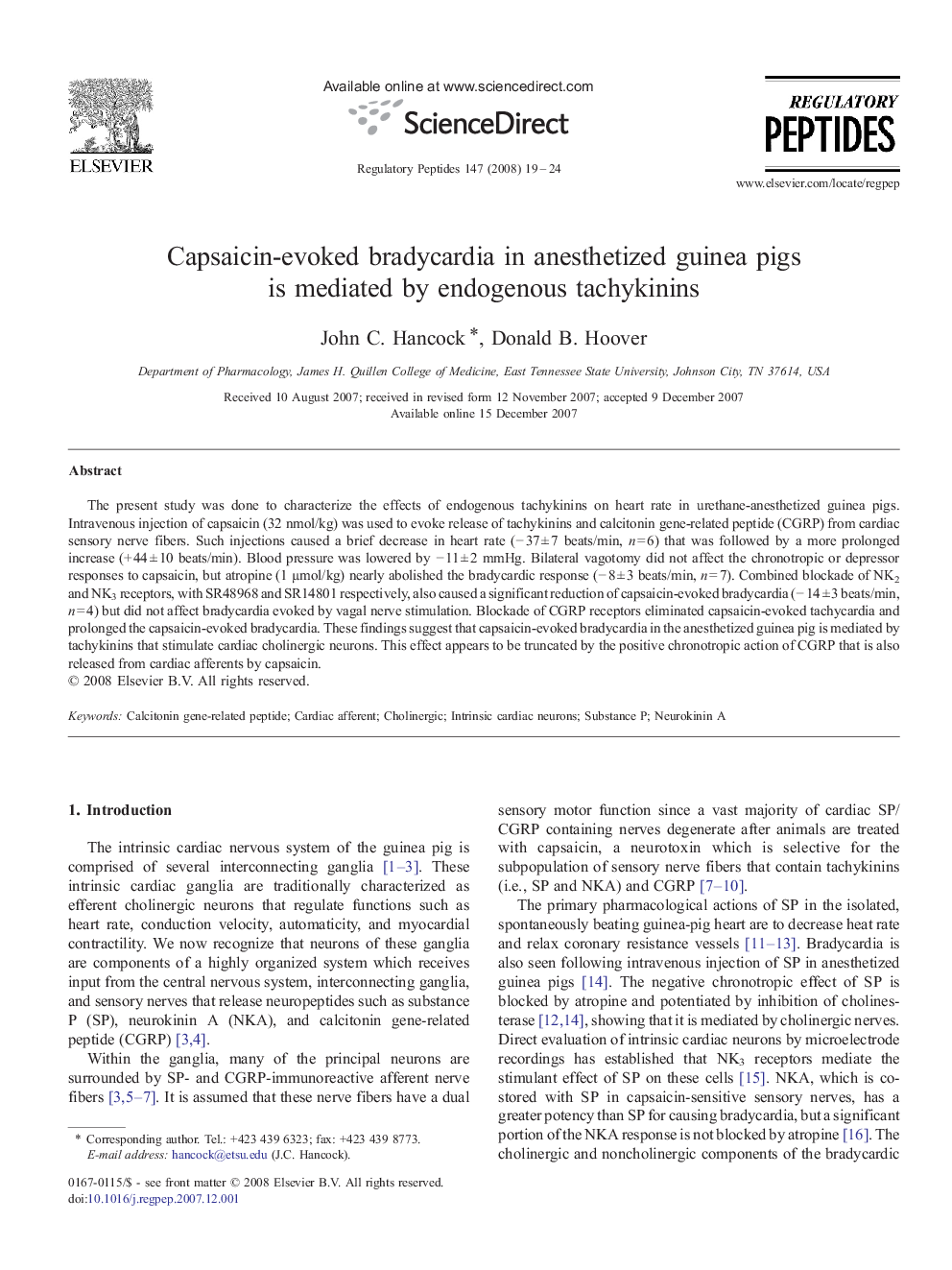| کد مقاله | کد نشریه | سال انتشار | مقاله انگلیسی | نسخه تمام متن |
|---|---|---|---|---|
| 2023159 | 1542438 | 2008 | 6 صفحه PDF | دانلود رایگان |

The present study was done to characterize the effects of endogenous tachykinins on heart rate in urethane-anesthetized guinea pigs. Intravenous injection of capsaicin (32 nmol/kg) was used to evoke release of tachykinins and calcitonin gene-related peptide (CGRP) from cardiac sensory nerve fibers. Such injections caused a brief decrease in heart rate (− 37 ± 7 beats/min, n = 6) that was followed by a more prolonged increase (+ 44 ± 10 beats/min). Blood pressure was lowered by − 11 ± 2 mmHg. Bilateral vagotomy did not affect the chronotropic or depressor responses to capsaicin, but atropine (1 µmol/kg) nearly abolished the bradycardic response (− 8 ± 3 beats/min, n = 7). Combined blockade of NK2 and NK3 receptors, with SR48968 and SR14801 respectively, also caused a significant reduction of capsaicin-evoked bradycardia (− 14 ± 3 beats/min, n = 4) but did not affect bradycardia evoked by vagal nerve stimulation. Blockade of CGRP receptors eliminated capsaicin-evoked tachycardia and prolonged the capsaicin-evoked bradycardia. These findings suggest that capsaicin-evoked bradycardia in the anesthetized guinea pig is mediated by tachykinins that stimulate cardiac cholinergic neurons. This effect appears to be truncated by the positive chronotropic action of CGRP that is also released from cardiac afferents by capsaicin.
Journal: Regulatory Peptides - Volume 147, Issues 1–3, 10 April 2008, Pages 19–24